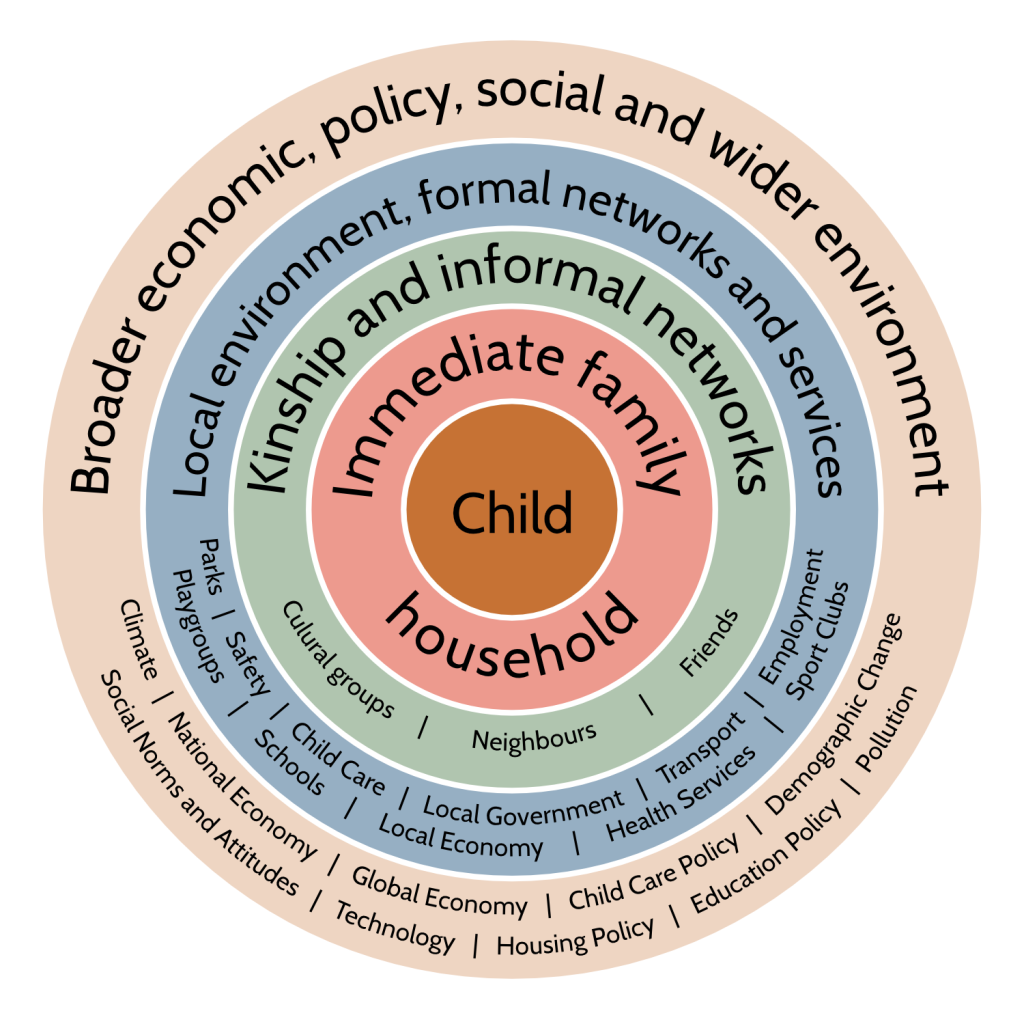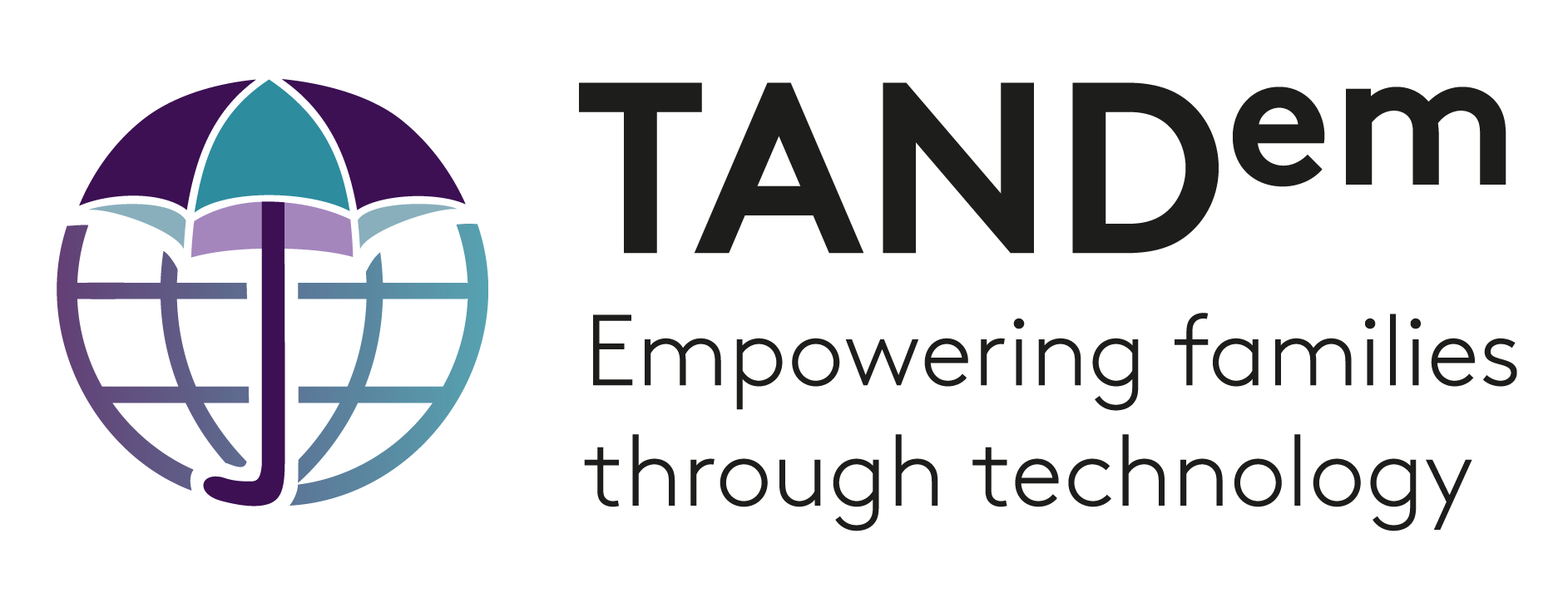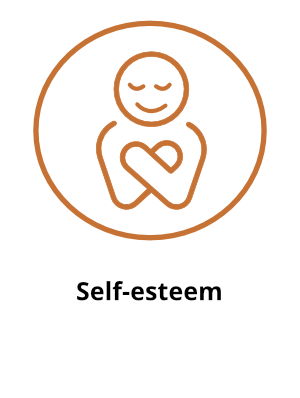Psychosocial Cluster
Home > TAND Clusters > Psychosocial > What to do > Support
Support
Family health can be displayed by means of different layers, which surround the individual family or household. All these levels interact with each other in both directions. As a family, you can reach out to these outer circles consisting of different environments, networks and services if you would like to receive advice, support or guidance. At the same time, families are the building blocks for all these layers, as each family member is part of multiple groups or systems, e.g. school, work and sports clubs.

Comprehensive family centred care
If you have no access to a case manager who overviews the individual’s trajectory and coordinates care, it might be of help to ask for advice from someone with TSC, or caregivers of a child with TSC, familiar with the local resources and services. At some sites, there are patient and family advisors: patients, families and other caregivers who are part of support associations or groups, or who work with healthcare providers to help improve the quality of care for others.
Patient and family advisors may offer invaluable insights and input regarding the care and services offered within your area based on lived experiences. Also, they may have the ability to identify what each institution or professional is doing well and what can be improved. The most important qualification an advisor can have is experience as a patient and family member and a passion for wanting to improve the healthcare experience for other patients and families.
In the resources panel are some tips on how to build a better relationship with your healthcare team.
Building a Relationship with Your Healthcare Team
[fcrc.albertahealthservices.ca]
Building a Partnership – Sharing Information
[fcrc.albertahealthservices.ca]
Working Together – Making Decisions
[fcrc.albertahealthservices.ca]
When We Disagree – Developing a Shared Understanding
[fcrc.albertahealthservices.ca]
Family support groups and associations
Advocating for the person with TSC
Advocacy means a person makes an informed decision about a matter and then takes responsibility for bringing about the change necessary to make that choice a reality. Some ideas to consider when advocating for someone with TSC:
- Be respectful but firm with your needs.
- Treat the doctor/hospital staff/school staff the way you want to be treated.
- Be persistent and ask for clarification.
- Know your rights.
- Keep good records.
- Request written confirmation of kept promises, timeline or denial.
Advocacy is an act of directly representing yourself and/or your child in a way that will be perceived as assertive, and not passive or aggressive. In the past, it has not been customary for people with disabilities to challenge the power of authorities, so it can be difficult for some to assert rights and needs. However, all people have the right to self-determination, even if it goes against professional judgment. Ultimately, each person is the expert in what is needed and useful, so go ahead and ask for it.
Basics of creating a community
You can create online communities in your language. When there are no patient support groups, you can work with other individuals interested in TSC. Representatives from the patient groups or the individuals act as moderators on the community and keep it active and updated on their groups’ activities. RareConnect offers suggestions and support for the creation, maintenance and growth of the communities.
Steps in Creating a Community on RareConnect
[rareconnect.org]
Educations support, career counselling, and coaching at work
Negotiating and understanding education systems can be daunting for anyone. For families affected by TSC, this confusion can be sometimes even greater. Children and young people living with TSC might need some extra help or assistance when in nursery, school or beyond. Thankfully, there are different provisions available that can make going through education while living with TSC easier. In the resource panel, the TSA website provides some key advice and guidance on negotiating education with TSC. You may also find some useful information about educational support in the ‘What to do’ section of the scholastic cluster in this toolkit, a link is provided in the resource panel.
Financial support or advice
Living with TSC may place many financial burdens on individuals and families. This might be due to a reduction of working hours for caregivers and the costs of supports. It may be of help to search government official sites or contact government social development or healthcare offices to ask about alternatives for financial support.
Access Benefits and Financial Aid
[tuberous-sclerosis.org]
Other themes under 'What to do'
[1] Adapted from the diagram by Joel Gibbs based on Bronfenbrenner’s (1979) ecological model.









